In terms of pure badminton and tradition, the finals of the Thomas and Uber Cups (TUC) set to unfold from this weekend at the inland Chinese city of Wuhan are the biggest events of the year in the sport.
In Part I, our preview specialist Aaron Wong evaluates how possible is it this year to turn the tables on China for the men as happened to their women’s side in the previous edition. He also pinpoints major aspects of team competition that have led to success.
By Aaron Wong, Badzine Correspondent. Photos: Badmintonphoto
Most of the world’s top badminton players will be attending these World Team Championships (a.k.a. Thomas and Uber Cups) which happen every two years. Some of those notable by their absence include those ousted at the regional stage like the Taiwan men’s who, some may be surprised to discover, have yet to make it beyond that barrier. It is only a matter of time before do, given their nascent talents; however, their rise in broad strength across the disciplines has been a relatively recent phenomenon.
One: Broad strength
So far, Denmark have been runners-up eight times and Korea once in the Thomas Cup. Both these great men’s badminton nations have produced world number ones, if not legends, in singles, doubles, as well as mixed, but have yet to capture this prestigious title.
This year Korea are seeded second through their dual top-five ranked strength in doubles and seeded third are Denmark with a stronger singles side on paper. China is the top seed and defending champions with four consecutive titles. They presently have three singles players ranked in the top four and two doubles pairs in the top five. (In fact, altogether the hosts are fielding four top-ten singles players and three top ten pairs).
For any country to ultimately win, firstly, broad strength in the team is a must. A very simplistic explanation is that neither Denmark or Korea have possessed sufficient top singles specialists at any one time to beat their opponents on the last day.
Thomas’s Paper Trades
Korea’s men’s side has a feasible chance at becoming victors compared to last time in Kuala Lumpur when doubles super star Lee Yong Dae (pictured above) was absent. Their twin doubles arguably have the narrowest edge over the Chinese line-up, and Shon Wan Ho’s India Open Super Series singles glory theoretically indicates he is up to the task of second singles against Chen Long or Chen Jin.
Jan O. Jorgensen (pictured left), who has shed the up-and-coming tag, is considered on par with Shon so he will be counted on to secure a point in the first or second singles for Denmark. Either of these bridesmaid nations can viably secure 3 out of the 5 matches through one singles and both doubles this time against, in all probability, China, and make history. Certainly, China would be aware and prepared.
Two: The dangerous scratch pair
All the early attention is on Thomas Cup Group C, where Denmark have drawn Malaysia. So much rests on the outcome of the first men’s doubles of Boe/Mogensen versus Koo/Tan, which for both countries are the cornerstones of their assault campaign. The Malaysians did not beat the Danish the twice they met in 2011 so if it comes down to it, the second doubles could be even more interesting to watch.
When used judiciously rather than having no choice but to, a dangerous scratch pairing is a formidable weapon and genuine tactic. For instance, in 2010, Indonesia employed mixed specialist Nova Widianto together with former world number one Alvent Yulianto to down Japan’s Hirata/Endo. Denmark are quite prepared to go down this path by naming the dynamic mixed doubles world number three Joachim Fischer-Nielsen (pictured above with Mathias Boe) in their squad and Malaysia’s scratch partner jewel is the ever reliable Hoon Tien How.
Three: Exercising different muscles
In Group A, Indonesia have drawn China. Simon Santoso has never scalped Lin Dan, whom he is likely to have to play in first singles. Although Santoso has been on the circuit many years and is undoubtedly deeply talented, composed and adaptable, nevertheless, playing the opening rubber in a team event requires rarely used sense of occasion “muscles” that need to be exercised.
The same basically goes for Tommy Sugiarto (pictured), there is a lot more benefit than meets the eye in playing such team fixtures, and every great athlete needs to acquire such experiences. Lin Dan, during his early career, also became undone in new or big occasions. Experiences aren’t something one is born with. China’s first women’s singles representative, Wang Yihan, possesses it this time but lacked it last time even though she was also world number one then.
—– In the upcoming Part II, Aaron Wong reveals the lessons learnt from Korea’s historic achievement at the last edition of the Uber Cup.—–
![THOMAS CUP 2012 Preview – Korea & Denmark have just enough to do the job? In terms of pure badminton and tradition, the finals of the Thomas and Uber Cups (TUC) set to unfold from this weekend at the inland Chinese city of Wuhan are […]](http://www.badzine.net/wp-content/uploads/Newsflash-thumbnail.png)
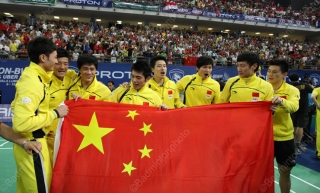
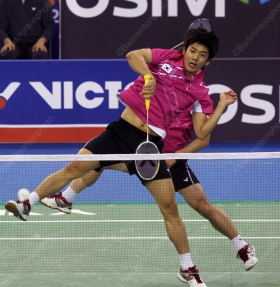
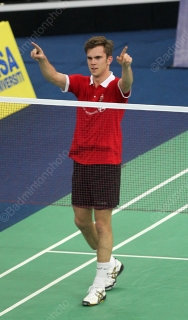
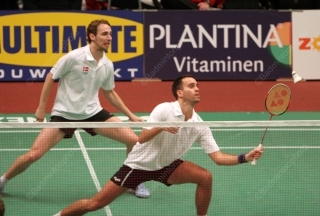
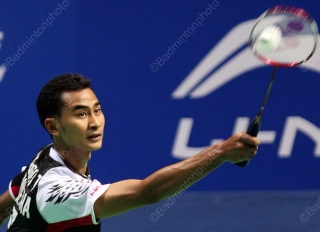

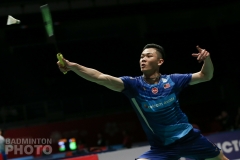
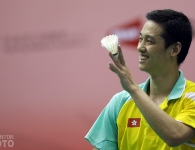
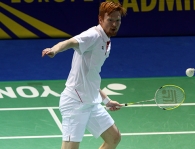
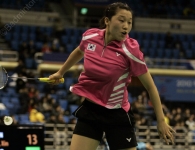

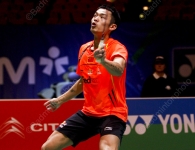
Leave a Reply